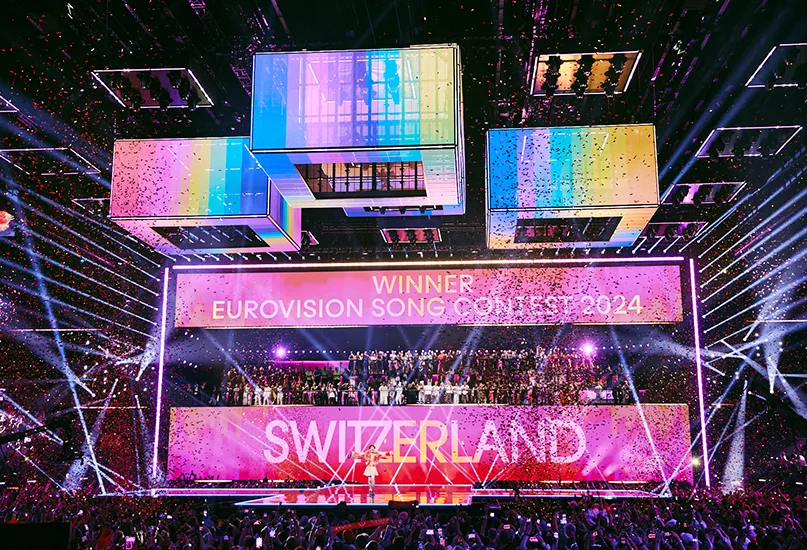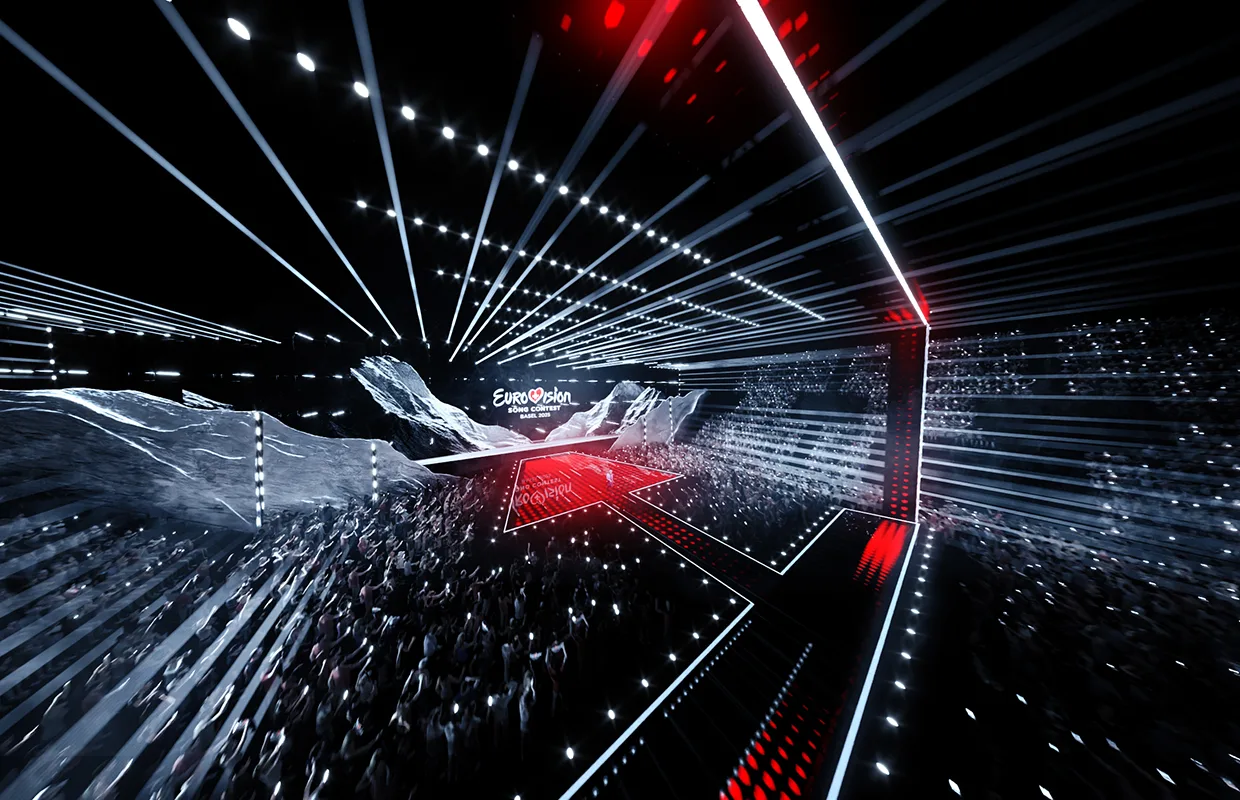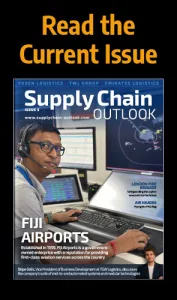Ahead of the 2025 Eurovision Song Contest, we look into the logistics behind the world’s largest live music event, which comes to Switzerland this May.
DELIVERING DOUZE POINTS
The Eurovision Song Contest (Eurovision), coordinated annually by the European Broadcasting Union (EBU), is a musical and cultural spectacle showcasing the continent’s diverse array of native languages, genres, identities, costumes, and more.
Nemo won the contest in 2024 with their genre-bending hit, “The Code”, a unique blend of pop, rap, drum and bass, and opera that earned Switzerland the right to host this year’s edition in May.
The captivating entry scored an impressive 591 points – 365 from the jury and 226 from the televote – securing Switzerland’s first Eurovision crown since 1988.
With a total of 37 countries set to compete for the title in Basel, including Australia, the Eurovision supply chain spans beyond the European continent and across the world.
The competition has been won at least once by 27 nations since it first took place in 1956, with Sweden and Ireland leading the way on seven victories apiece.
The former are currently the favourites to win this year’s edition, with KAJ performing “Bara Bada Bastu” – translating to “just take a sauna” – for Eurovision’s joint-most successful participant.
Sweden will be turning up the heat in Basel, and the supply chain plays a vital role in planning, coordinating, and executing the hotly anticipated international showpiece and ensuring its success.
KEY LOGISTICS HUB
Basel, a key logistics hub, was selected as the host city for this year’s contest in August 2024, seeing off Geneva in the final round of a competitive bidding process.
This process examined facilities at the venue, local infrastructure, and the ability to accommodate thousands of visiting crew, delegations, fans, and journalists from across the world, amongst other important criteria.
From a supply chain perspective, Switzerland’s third-most populous city is conveniently and strategically located at the tripoint with Germany and France in the far north of the country, ideal for managing cross-border logistics and accessing the European market.
Hosting Eurovision is, however, an expensive endeavour, with Basel budgeting CHF35 million to hold the event, emphasising the need for logistics that are both cost and time-efficient.
Eurovision 2025 will be held at St. Jakobshalle, a multipurpose indoor arena primarily used for sports and concert events that can accommodate up to 12,400 spectators.
Work is now underway to ready the venue for Eurovision after it was handed over to the host broadcaster, SRG SSR, including construction of the stage and supporting infrastructure.

EUROVISION 2025 AT A GLANCE
- Host country: Switzerland
- Host city: Basel
- Host venue: St. Jakobshalle
- Participating countries: 37
- Semi-finals: Tuesday 13th and Thursday 15th May
- Grand final: Saturday 17th May
Inspired by Switzerland’s mountains and linguistic diversity, the stage design is being overseen by Production Designer, Florian Wieder, who has Swiss roots.
According to Wieder, the goal was to create a revolutionary stage concept – a holistic experience never seen before at Eurovision. Thanks to the immersive stage layout, the audience will be part of Eurovision like never before.
This is set to rival the impressive Malmö Arena stage used at last year’s edition, brought to life by its spectacular LED flooring and moveable cubes.
As the St. Jakobshalle stage incorporates unique elements inspired by the host country, it requires custom fabrication and precise delivery schedules.
Suppliers must therefore deliver items such as construction materials, stage equipment, lighting, sound systems, and LED screens on time, often requiring cross-border transportation and customs clearance.
Similarly, advanced technological infrastructure is also required in order to broadcast Eurovision to viewers around the world.
Efficient broadcasting logistics amplify Eurovision’s audience, which reached 163 million in 2024, supported by a supply chain that equips host cities with cutting-edge technology.

TRANSPORTING PEOPLE AND PROPS
Basel boasts world-class, multi-modal transport infrastructure, including rail and road networks, which facilitate the efficient movement of people for the contest.
Each participating country sends an extensive delegation that includes artists, back-up singers, dancers, and choreographers, who require safe, timely travel to the host city.
Logistically, this involves booking and organising transport for each delegation and coordinating visas where necessary.
The contest’s tight televised schedule – two semi-finals and the grand final within one week – leaves little room for delay, exacerbated by rehearsals starting a fortnight prior and many delegations arriving weeks in advance for them.
Performances also often feature elaborate costumes, instruments, and props tailored to each act that must be transported to the venue, often requiring specialised handling to prevent damage.
Last year’s edition of the contest, for example, featured a number of intricate probs, including Nemo’s unique spinning disk and Ukraine’s striking rock that was conquered by Jerry Heil, amongst others.
The supply chain therefore has a crucial behind-the-scenes role to play in successfully delivering a Eurovision worthy of douze points.























